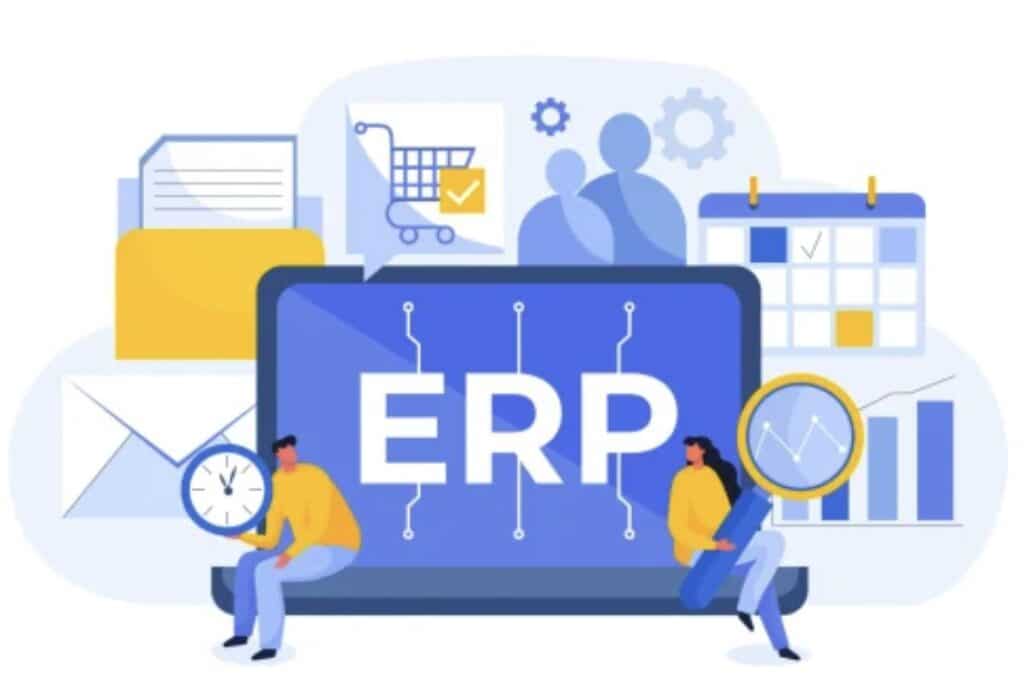Enterprise Resource Planning (ERP) systems are comprehensive software solutions designed to streamline and integrate business processes across various departments within an organization. In essence, ERP acts as a central hub that enables efficient data management and communication across all functional areas of a company.

Key Features of ERP Systems
- Integration: One of the fundamental features of ERP systems is their ability to integrate data and processes across different departments, eliminating data silos and enhancing collaboration.
- Centralized Database: ERP systems centralize all critical business data into a single repository, providing a unified view of information to users across the organization.
- Automation: ERP automates repetitive tasks and processes, reducing manual intervention and improving efficiency.
- Scalability: ERP solutions are scalable, allowing businesses to adapt and grow without the need for significant changes to the system.
Streamlining Business Processes with ERP
ERP systems offer modules tailored to specific business functions, including:
- Financial Management: ERP facilitates financial operations such as accounting, budgeting, and financial reporting.
- Supply Chain Management: ERP optimizes supply chain processes, including procurement, inventory management, and order fulfillment.
- Human Resource Management: ERP streamlines HR functions such as payroll, employee benefits administration, and performance management.
- Customer Relationship Management: ERP enhances customer interactions by centralizing customer data and automating marketing, sales, and service processes.
Improved Decision Making with ERP
ERP systems provide real-time insights into key performance indicators (KPIs) and offer advanced reporting and analytics capabilities, empowering businesses to make informed decisions quickly and effectively ERP systems integrate data from various departments and functions into a single platform. This centralized data repository provides decision-makers with a holistic view of the organization’s operations, enabling them to make informed decisions based on accurate and up-to-date information.
Enhanced Collaboration and Communication
ERP promotes collaboration and communication across departments through features like ERP systems facilitate real-time data processing, allowing decision-makers to access timely insights into key performance indicators (KPIs), such as sales figures, inventory levels, production schedules, and financial metrics. This real-time visibility enables quick decision-making in response to changing market conditions or internal factors.
- Cross-departmental Coordination: ERP breaks down departmental barriers, enabling seamless communication and collaboration.
- Remote Access: ERP systems can be accessed remotely, allowing employees to work from anywhere, anytime.
Cost Reduction and Efficiency Gains
By streamlining processes, reducing manual efforts, and optimizing resources, ERP systems help businesses achieve cost savings and operational efficiency ERP systems often include built-in analytics and reporting tools that allow decision-makers to analyze data trends, identify patterns, and generate customizable reports. These analytical capabilities empower decision-makers to derive actionable insights from vast amounts of data, facilitating better strategic planning and operational decision-making.
ERP Implementation Challenges
Despite the benefits, ERP implementation can be challenging due to factors such as By automating routine tasks and streamlining business processes, ERP systems reduce operational inefficiencies and enhance productivity. This optimization enables decision-makers to focus their attention on more strategic initiatives rather than getting bogged down in manual or repetitive tasks ERP systems help organizations adhere to regulatory requirements and mitigate risks by enforcing standardized processes, maintaining accurate records, and providing audit trails. Decision-makers can rely on ERP systems to ensure compliance with industry regulations and proactively address potential risks before they escalate.
- Cost: ERP implementation involves significant upfront costs, including software licensing, customization, and training.
- Resistance to Change: Employees may resist adopting new processes and technologies, leading to resistance and delays.
- Data Security Concerns: ERP systems centralize sensitive business data, raising concerns about data security and privacy.
Overcoming ERP Implementation Challenges
Successful ERP implementation requires careful planning, comprehensive user training, and robust data migration strategies to mitigate risks and ensure smooth adoption ERP systems support forecasting and planning activities by providing access to historical data, predictive analytics, and scenario modeling tools. Decision-makers can use these capabilities to forecast demand, anticipate resource requirements, and develop strategic plans for future growth or expansion.
Case Studies: Successful Implementation of ERP Systems
- Company A: By implementing an ERP system, Company A witnessed a significant increase in productivity and profitability, thanks to streamlined processes and improved data visibility.
- Company B: Company B successfully implemented an ERP system, resulting in enhanced inventory management capabilities and better decision-making.
Future Trends in ERP
As technology evolves, ERP systems continue to evolve with trends such as ERP systems promote collaboration and communication across departments by providing a centralized platform for sharing information and coordinating activities. Decision-makers can collaborate more effectively with colleagues, suppliers, and customers, leading to better-informed decisions and improved outcomes.
- Cloud-based ERP Solutions: Cloud-based ERP solutions offer scalability, flexibility, and cost-effectiveness compared to traditional on-premises systems.
- AI and Machine Learning Integration: AI and machine learning technologies are being integrated into ERP systems to automate processes, optimize operations, and provide predictive insights.
- Internet of Things (IoT) Integration: ERP systems are incorporating IoT devices to collect real-time data from connected devices, enabling proactive decision-making and process optimization.
Conclusion
ERP systems play a crucial role in supporting businesses by streamlining processes, improving decision-making, enhancing collaboration, and reducing costs. Despite implementation challenges, the benefits of ERP far outweigh the drawbacks, making it an essential tool for modern organizations.